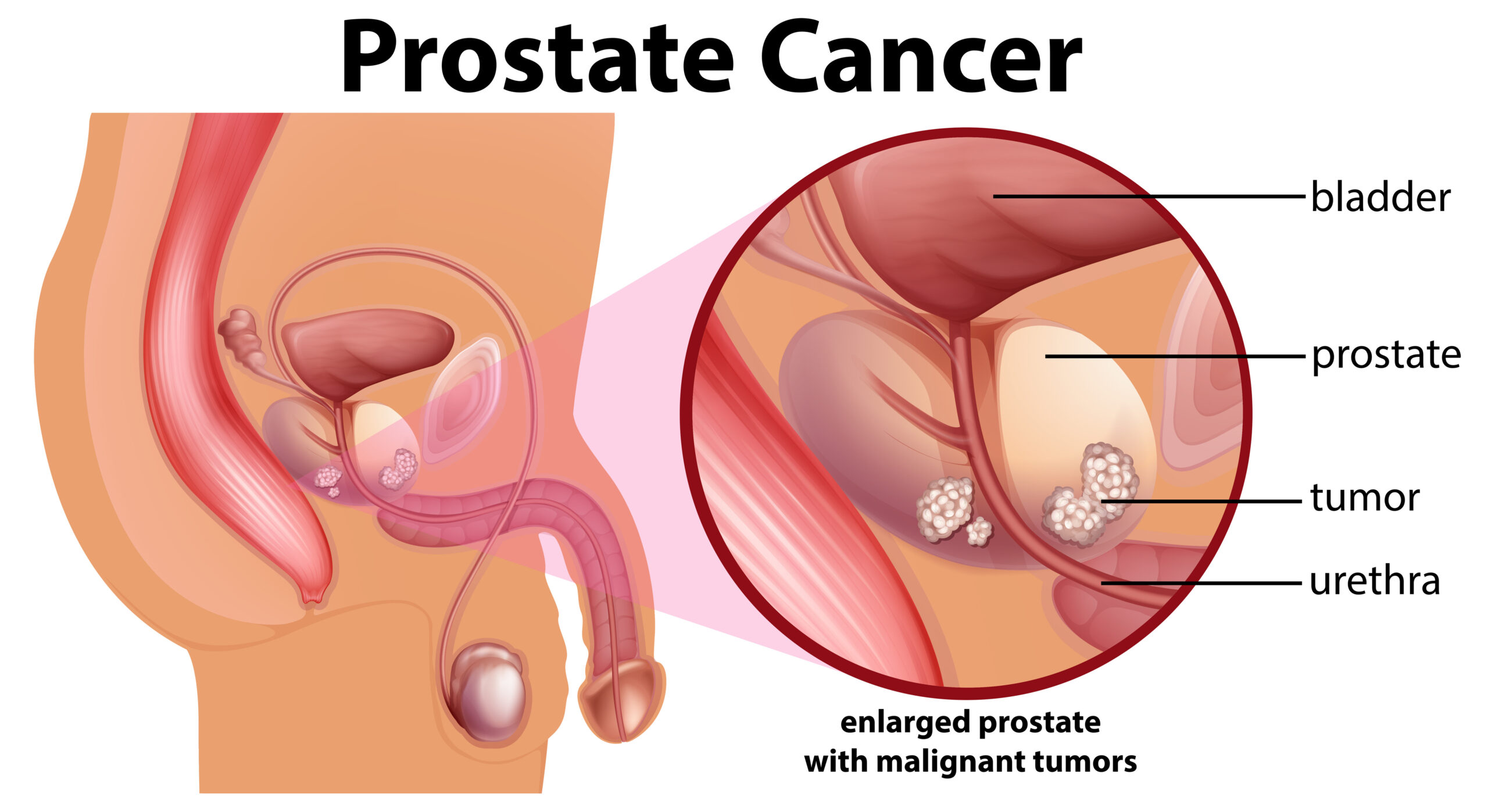Prostate cancer is the second most common cancer in men, affecting one in eight men during their lifetime, and it often develops silently without early symptoms.
While many cases grow slowly and may not cause harm, some forms are aggressive and require prompt treatment. Understanding your risk and choosing to be screened can make all the difference.
Common causes and risk factors of prostate cancer
The exact cause of prostate cancer remains unclear, but several risk factors contribute to its development.

Age is the most significant — men over 50 are at increased risk, and the likelihood rises with each passing decade. Genetics also play a role. Men with a father or brother who had prostate cancer are twice as likely to develop it themselves.
Race is another factor. African American men are more likely to be diagnosed with prostate cancer and often face more aggressive forms of the disease.
“Understanding your risk is the first step toward prevention,” says Evan Spencer, MD, a urology specialist at Mount Nittany Health. “Men should talk to their doctors about screening, especially if they have a family history or other risk factors.”
Symptoms of prostate cancer to watch for
In its early stages, prostate cancer often causes no symptoms, which is why routine screening is so important. However, as the disease progresses, certain signs may begin to appear. Recognizing these symptoms early can lead to early diagnosis and treatment.
“Men often dismiss urinary changes as normal aging,” says Dr. Spencer. “But persistent symptoms deserve attention in their own right, and some men who initially seek treatment for urinary symptoms are discovered to have prostate cancer and benefit from early diagnosis.”
In more advanced cases, prostate cancer may spread to the bones, causing bone pain, particularly in the hips, spine or pelvis. Unexplained weight loss and fatigue can also be signs of metastatic disease.
Prostate cancer treatment options
Once prostate cancer is diagnosed, treatment decisions depend on several factors, including the stage of the disease as well as the patient’s overall health outlook and personal preferences.
For low-risk cases, active surveillance is often recommended. This approach involves regular blood tests and advanced imaging to monitor the cancer’s progression. Because it avoids immediate intervention, active surveillance typically spares patients from the side effects associated with more aggressive treatments, while still ensuring their safety.
For more advanced cases, treatment options include:
- Surgery, such as robotic radical prostatectomy, to remove the prostate gland
- Radiation therapy, which may be external or internal (brachytherapy)
- Hormone therapy, aimed at reducing testosterone levels and slowing cancer growth
- Chemotherapy, typically used when the cancer has spread beyond the prostate
“We tailor treatment to each patient’s needs,” says Dr. Spencer. “Some men never need aggressive therapy, while others benefit from early intervention with surgery or radiation.”
As with any treatment, each one has its own benefits and potential side effects. Work with your care team to find the best treatment option for you.
Advanced treatment options at Mount Nittany Health
At Mount Nittany Health, patients have access to some of the most advanced prostate cancer treatment options available in central Pa.
Innovative services offered include:
- New 3.0T MRI system, allowing high-resolution prostate imaging before biopsy
- MRI-guided biopsies, improving diagnostic accuracy and catching aggressive disease early
- Genomic testing, helping to measure cancer aggressiveness and surveillance safety
- Robotic-assisted surgery, achieving greater precision, fewer side effects and faster recovery
“Our goal is to provide compassionate, evidence-based care in our community,” says Dr. Spencer. “We’re proud to offer advanced therapies that rival academic centers.”
Urology
Discover more about Urology, including locations and providers, at Mount Nittany Health


